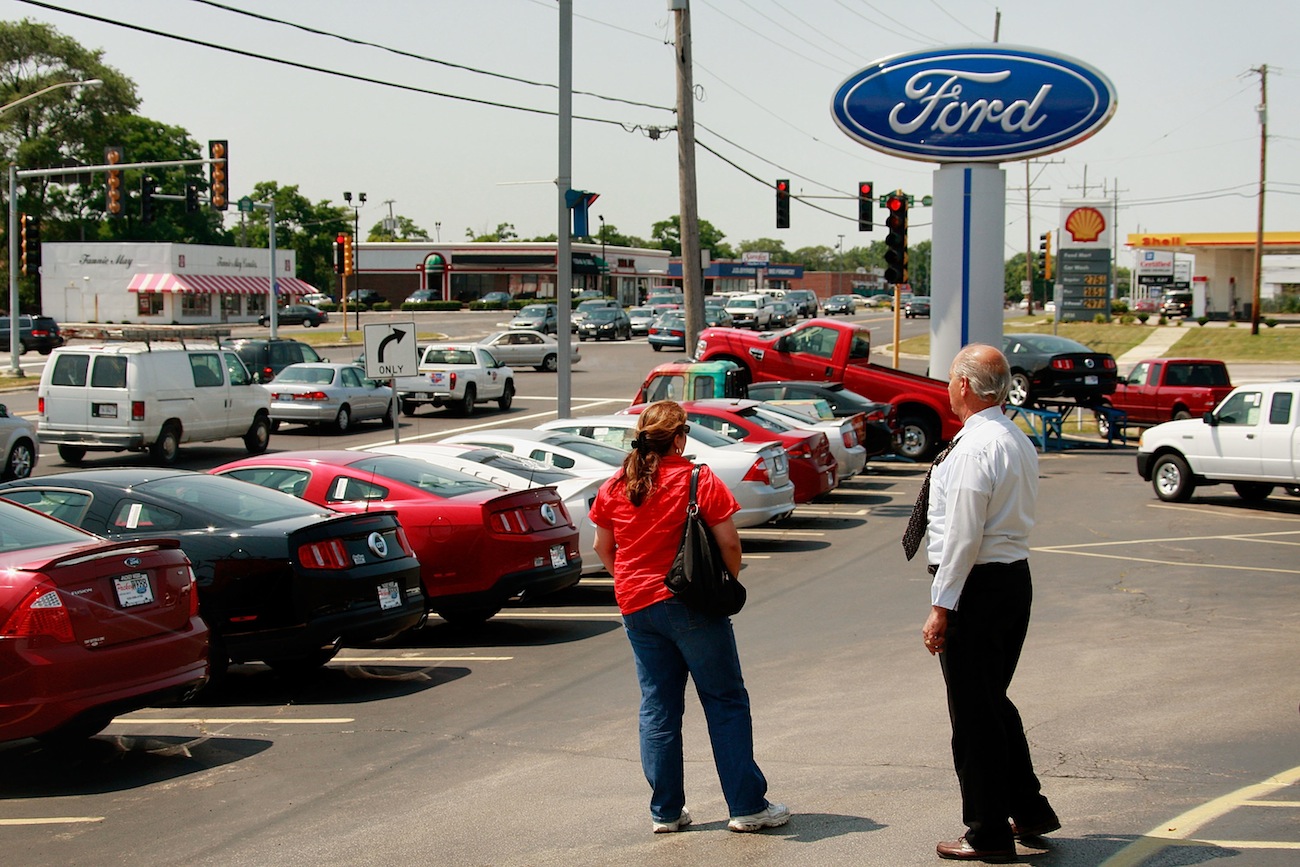Car dealers have been around for as long as there have been cars – and for over 100 years, many of those dealers have sold Fords.
The oldest Ford dealership dates to 1903, and the automaker now has over 3,000 Ford and Lincoln “stores,” as they’re called in the industry, in the US alone.
The National Automobile Dealers Association annual convention runs through this weekend in New Orleans, and Ford CEO Mark Fields and Stephen Odell, Ford’s Executive Vice-President for Marketing, Sales and Service – the carmaker’s point person for its dealers – took some time to talk to Business Insider before they faced some of their most important customers in the Big Easy. We addressed the inevitable questions about Ford’s future and its relationship to President Donald Trump’s administration.
Major changes
The dealership business has gone through major changes in the past two decades. The internet has opened new avenues for buyers and leasers to research vehicles, obtain financing, and manage service. Since Tesla emerged as the first significant new American auto company in half a century, the longstanding dealer-franchise business model has also come under attack. This is because Tesla’s CEO Elon Musk strives to develop an alternative, direct-sales process.
At the same time, dealers have adapted, and in the US, many are thriving as the market sets new sales highs. In 2016, 17.55 million new cars and trucks rolled out of showrooms, and many of those vehicles were sold by Ford dealers. The automaker is second only to GM in US market share, and its F-Series trucks were once again America’s best-selling vehicles in 2016.
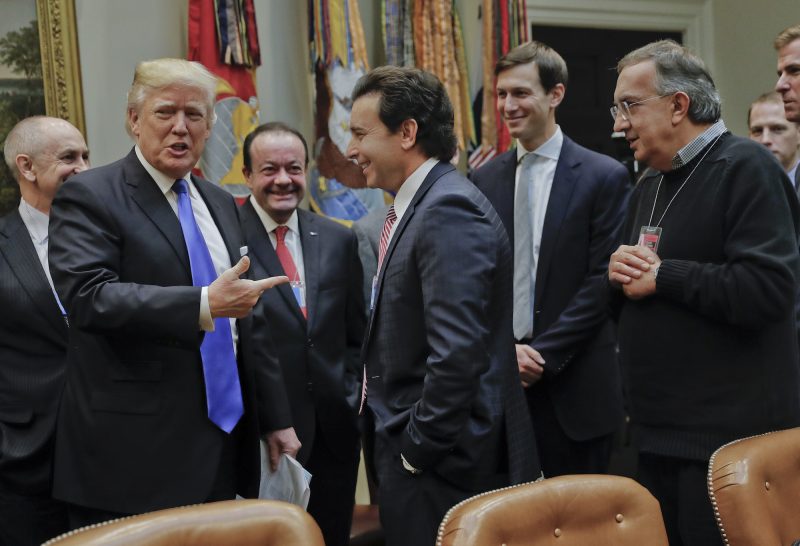
Fields immediately stressed his and Odell's background with dealers.
"Stephen and I both started our careers in marketing sales and in the field," he said. "We have a visceral understanding of the role the dealers play."
Both Fields and Odell emphasized Ford's firm commitment to the franchise model.
"We firmly believe in the franchise model around the world," Odell said, highlighting Ford's global footprint, which is currently expanding in countries such as China, where 65 Lincoln dealerships have been added since the brand arrived there in 2014.
But Ford also wants to help its dealers move into the 21st century, especially as the carmaker pursues Fields vision of becoming both a car company and a mobility provider.
The transformation of Ford
Ford has established a presence in Silicon Valley. The automaker acquired Chariot, a San Francisco-based shuttle service, last year and created Ford Smart Mobility in early 2016 to coordinate its efforts in the space. The company asked Jim Hackett, former CEO of Steelcase and confidant of Ford Chairman Bill Ford, Jr., to leave the Ford board to run the new group.
What's more, the company has also pledged to get a fully autonomous vehicle on the road by 2021 and has launched its City of Tomorrow initiative, which works with urban leaders and Bloomberg Philanthropies to create new ways of getting around in congested metropolitan environments.
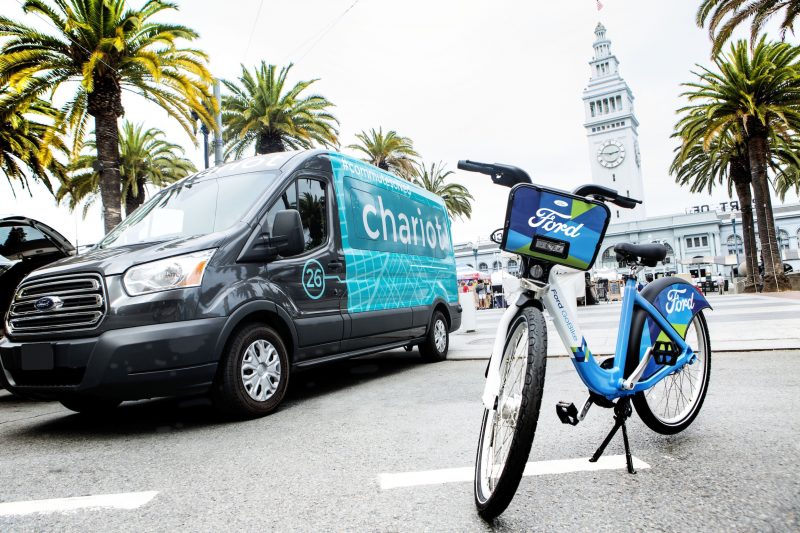
Car dealers are understandably concerned about these moves, as on their face they suggest a company moving away from a time-honored business model of building cars and then sending them to dealers to sell, lease, finance, and service.
"Dealers are asking more and more what their role is for the future, but the dealership model has longevity beyond what people think it does," Odell said.
"Switched-on dealers are asking how they can participate, and I don't think there's panic."
But he added that dealers' questions to Ford's leadership are "becoming more pointed because of what they see in the press."
Repeating history
Fields pointed out that dealers have been through this before, when the internet arrived and the old ritual of going down to the showroom, picking up an armful of brochures, and bringing them home to spread out on the kitchen table so the family could salivate over a new car was displaced by clicking through vehicle configurations, reviews, and best-price aggregators online.
"I've always been impressed by the capability of our dealers to adapt," Fields said, adding that when the internet became a bigger part of buying a car, people said dealers weren't long for the world.
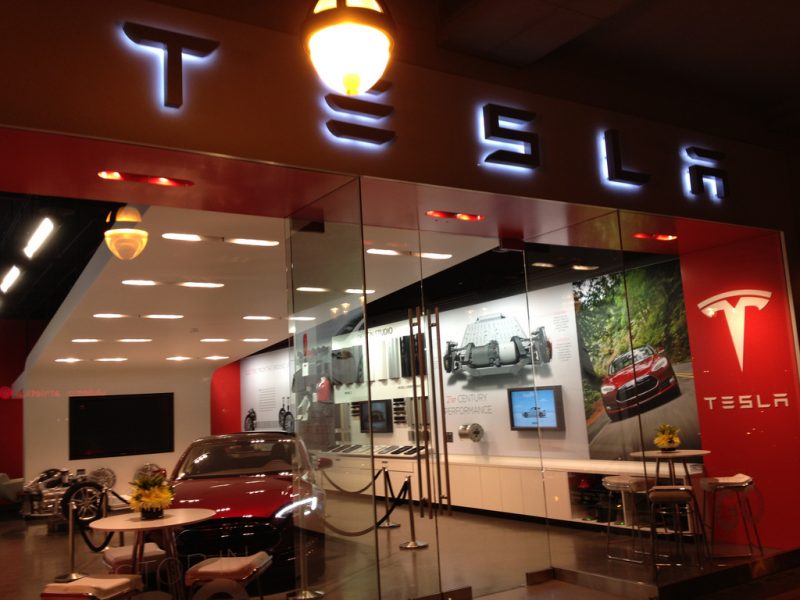
"We found and that people do still want to see, and touch, and feel the car," he said.
Fields said that although Ford has a vision for the future, it can't predict exactly what the market will look like in ten or 15 years. But he insisted that Ford and its dealers will be on a shared journey - a journey that acknowledges dealers have the best view of what's happening on the ground, day to day.
"What we're not going do is say 'This how you should run your business,'" Fields said. "We're just saying, 'Here's our view of the world, let's work together to get there.'"
City of Tomorrow
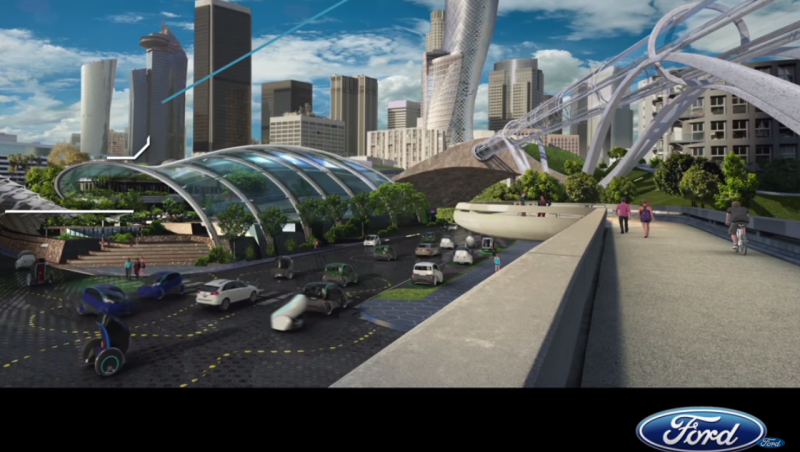
For Fields and Ford, that view of the world has a strong urban component, and that's why the company has been developing its City of Tomorrow ideas, laying them out at the Los Angeles auto show late last year and again at the Detroit auto show In January.
These ideas are futuristic and don't rely on owning a vehicle to obtain transportation. Rather, the company seeks to improve economic activity and quality of life by cutting down on pollution and congestion, and that entails deep and systemic thinking about how, for example, President's Trump's proposed infrastructure spending can bolster urban mobility.
"We've taken a view of what the city of tomorrow will look like," Fields said.
The CEO has met twice with Trump since the inauguration and said that new urban infrastructure "can't just be cutting and pasting what we've done in past - it's an opportunity for planners to rethink every aspect of the city."
The mass implementation of what Fields called a "transportation operating system," featuring everything from connected cars and autonomous vehicles to shared mobility, smarter mass-transit, and even drones. All of these changes will be a challenge for dealers, but they also have an opportunity similar to what they experienced when the internet arrived.
"City solutions are going be local solutions," Odell said. "Dealers know how the community operates, so their ideas and solutions will be welcome. The core business isn't going away, and electric and autonomous vehicles will still need to be maintained and repaired."
He added that Ford dealers are something of a secret weapon for the company as the transportation landscape is transformed.
"Other businesses called 'disruptors' look very jealously at the 10,000 dealer locations we have around the world," Odell said.

